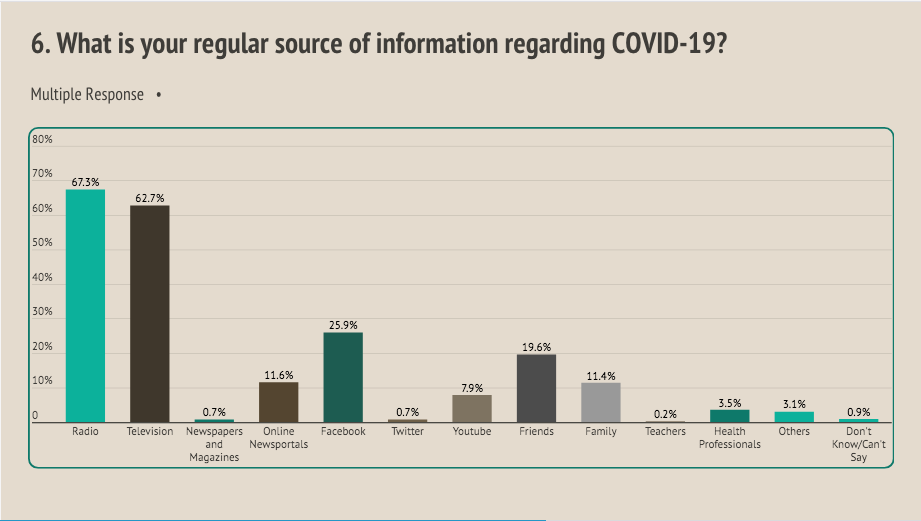Written by Bhumi Raj Chapagain
Diploma in Development Leadership, 2015; Coady Fellowship, 2017
Practice, Adaptations, Innovations
Nepal has been in lockdown since April 24th, 2020 due to the global COVID-19 pandemic. All domestic and international flights are halted, and business, industries, schools, and transportation closed. The Nepali government has a limited capacity for coronavirus testing, and it is taking longer than expected to obtain results. Nepali health workers and frontline responders lack proper personal protective equipment (PPE) such as masks, and hospitals lack intensive care units (ICUs) and ventilators. Meanwhile, in some places, people have been misguided with spreading rumors and misinformation, including that the virus can be treated by drinking plenty of alcohol or taking soup; that this disease affects only the elderly and very young; or that by offerings puja, visits to traditional healers, prayer or animal sacrifice, one can overcome the virus. This misinformation affects illiterate people from remote areas in particular and has increased health-related tensions in the country. But neither the government nor other agencies has done any study on what people actually think about COVID-19, or on people’s perception, knowledge, and understanding of the virus.
After one week of lockdown, Sharecast took the initiative to launch a nationwide survey in order to understand citizens’ knowledge, attitude, and practices (KAP) regarding COVID-19. Sharecast utilized its database of respondents from the Nepal Media Survey 2020 which was completed in February 2020 (see here for more on Sharecast and Media Surveys). A total of 1,110 respondents were randomly selected from a pool of 4,830 to ensure national representation for the COVID-19 KAP Survey. Twelve enumerators were trained remotely to call respondents within three days in early April.
Respondents from the Nepal Media Survey 2020 were selected using probability proportion size (PPS) sampling covering seven provinces, across the mountains, hills and plains region, and various places of residence. At the ward level, households were randomly selected using a simple random method. A similar lottery method was used to identify respondents at the household level. The mobile-based application Ona was used to collect the data. This was a fairly new remote survey tool for Sharecast, not previously used as part of its annual Nepal Media Survey series.
A total of 13 questions were asked covering knowledge about COVID-19, preparedness, sources of information, responses to lockdowns, and satisfaction towards government efforts.
The main findings from the survey are as follows:
- The majority of Nepalese are aware of the COVID-19 symptoms, and preventive measures like proper handwashing, wearing a mask, and avoiding crowds;
- Almost two-thirds of respondents are afraid of this pandemic because of the open border, the limited availability of tests, and an influx of migrant labor from India and other developing countries;
- Radio and television are the key sources of information on COVID-19, followed by social media and other digital platforms;
- A majority of respondents are satisfied with government efforts (at local, provincial, and federal levels) to control the pandemic; and,
- A majority of respondents supports lockdown measures and opine that it should continue until things settle down.
Detailed findings of the survey can be found here.

The survey findings have helped to break the silence created by COVID-19 after the lockdown announced by government. Sharecast’s COVID-19 KAP survey has received huge media coverage, with technical contributions by multiple experts, individuals, and institutions. Nepal’s government acknowledged the survey findings, which were discussed in the government task force responding to the COVID-19 pandemic. Nepal’s Prime Minister also acknowledged the survey, which he mentioned in a national address. Survey findings helped multiple stakeholders to understand the baseline regarding the COVID-19 response and to address needs accordingly.
Reflections, Learning and Lessons
Sharecast has concluded that the decision to conduct a survey was very timely. The findings were very useful for all frontline responders and to design messages and choose channels for advocacy related work. Based on the feedback and public response, Sharecast is committed to continuing to collect data concerning the Nepali population’s knowledge and perceptions on the pandemic response, and to share the findings with government, the non-government sector, and for public consumption.
Lockdown has affected previously planned external activities. After the lockdown announcement, we have started to work from home, which has limited our scope and mobility. Initially, the announcement was for a week but after more than a month, it is still uncertain how long it will go. People have had different thoughts, rumors and kind of uncertainty due to prolonged lockdown. Thus, we have decided to launch the survey to understand people’s perception on COVID 19 pandemic. That’s why we decided to engage people in the survey.
The telephone survey was a first for us as well, and that worked very well. After the first survey, we have built some confidence within us to accomplish a similar survey as a follow-up to measure changing scenarios, perceptions and the thoughts of people towards COVID-19. This was good choice for us in this pandemic situation to engage people to understand the COVID-19 impact.
This initiative enabled Sharecast to act wisely in the crisis situation by utilizing minimal resources and engaging citizen remotely. Sometimes, crises convert into opportunity to contribute to the nation. This became an opportunity to generate content, to break the silence for public consumption, and to contribute to the country in a way that is based on evidence.
As a response to shifting priorities, this global crisis may hamper the effectiveness of democracy and good governance, perhaps intentionally or unintentionally. Some democratic norms, values, principles, and governance systems may be weakened by the ruling government. Thus, the democratic process, open governance, and open budget issues might be violated. Therefore, more efforts should be needed to ensure the democratic governance in the future.

Bhumi Raj Chapagain a media manager, broadcast journalist, and organizational development expert. He has a Master’s degree in Population and Development Studies from Tribhuwan University, and a Diploma in Development Leadership from Coady International Institute at St. Francis Xavier University.
We are pleased to partner with Participedia – a crowdsourcing platform for researchers, activists, practitioners, and anyone interested in public participation and democratic innovations.
Browse the Coady Institute Graduates Collection on Participedia
Browse the Citizens Voices & Values on COVID-19 Collection Particpedia